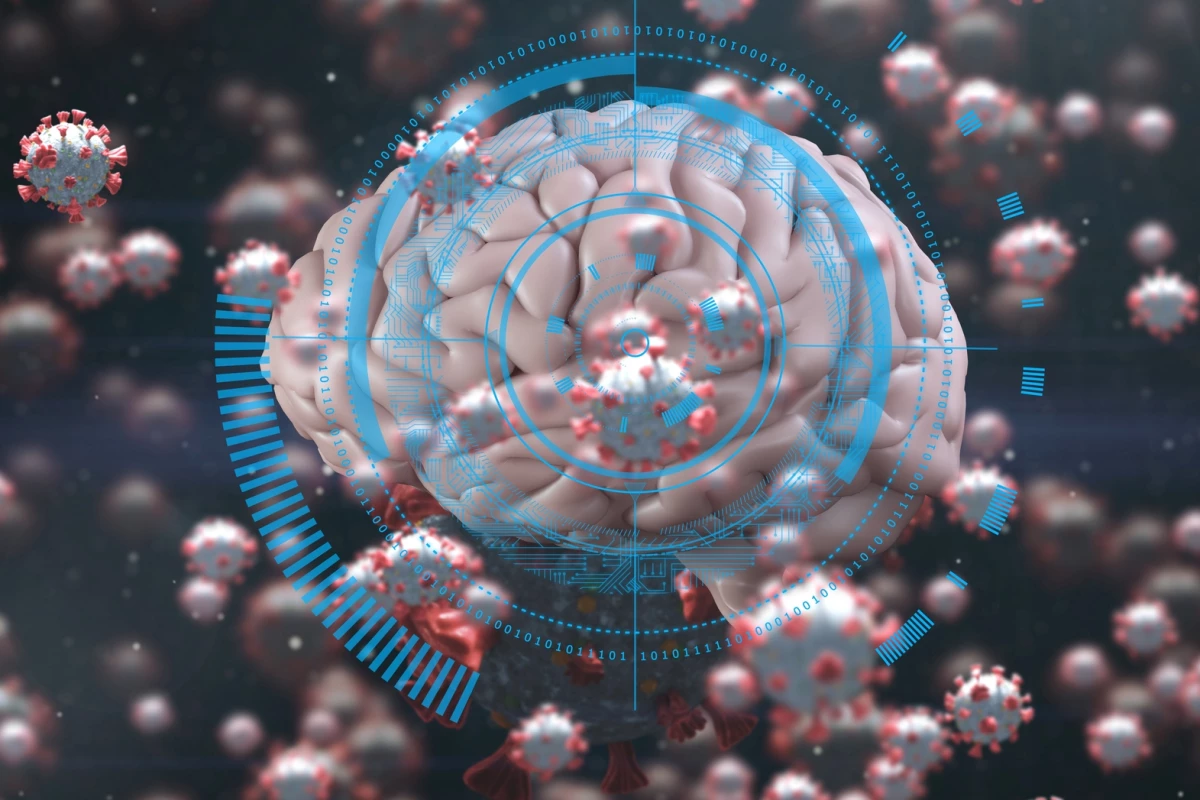A new article from a team of neuroscientists at the Florey Institute of Neuroscience & Mental Health is warning a future ‘silent wave’ of neurodegenerative disease may be spawned by the current COVID-19 pandemic. The researchers suggest the SARS-CoV-2 virus can increase a person’s risk of developing Parkinson’s disease.
Parkinson’s disease is characterized by the progressive death of dopamine-secreting neurons in the brain’s basal ganglia. The cause of Parkinson’s is still unknown, but most researchers agree the disease is the result of a number of genetic and environmental factors. Kevin Barnham, one of the authors of the newly published article, describes the onset of Parkinson’s as triggered by a “mosaic of events.”
To explain exactly how several seemingly disparate factors can aggregate and lead to the onset of Parkinson’s disease a concept called the “dual-hit hypothesis” has been presented. This hypothesis suggests an initial viral infection can first cause neuroinflammation, “priming” the brain to overreact to a subsequent neurological event later in life.
That second neurological event can be anything from another viral infection, to exposure to a pesticide or even simple aging. This second “hit” results in an abnormal neural response leading to the neurodegeneration ultimately responsible for Parkinson’s disease.
Barnham and colleagues point to a growing number of reports demonstrating SARS-CoV-2 is a neurotropic virus, meaning it has the ability to enter brain tissue. This suggests the novel coronavirus certainly has the capacity to serve as a pathogenic “primer” for increasing Parkinson’s risk.
“Although scientists are still learning how the SARS-CoV-2 virus is able to invade the brain and central nervous system, the fact that it’s getting in there is clear,” says Barnham. “Our best understanding is that the virus can cause insult to brain cells, with potential for neurodegeneration to follow on from there.”
The researchers also reference the fall-out from the 1918 Spanish Flu pandemic as evidence of the dual-hit hypothesis. Five years after the Spanish Flu pandemic ended, global Parkinson’s disease diagnoses had almost tripled.
“We can take insight from the neurological consequences that followed the Spanish Flu pandemic in 1918 where the risk of developing Parkinson’s disease increased two to three-fold,” says Barnham. “Given that the world’s population has been hit again by a viral pandemic, it is very worrying indeed to consider the potential global increase of neurological diseases that could unfold down track.”
The researchers do stress it is still too early to quantify exactly how much COVID-19 could increase one’s risk of developing Parkinson’s. Plus, it is very important to clearly state there is no evidence, or even suggestion, that the SARS-CoV-2 virus can directly cause Parkinson’s disease.
Instead, the researchers warn rates of Parkinson’s disease could dramatically rise over the coming years, following on from this pandemic. Parkinson’s is currently one of the fastest growing neurological diseases worldwide, with cases doubling from three to six million over the past 20 years.
Even without this pandemic bumping up the numbers, experts calculate the disease will affect more than 12 million people by 2040. Considering tens of millions of people around the world have already contracted COVID-19, just a mild increase in Parkinson’s risk from the virus could lead to “serious ramifications for the health care systems of many countries”.
Barnham and colleagues also suggest these future neurological concerns must be considered right now by governments crafting plans to manage the acute spread of the virus.
“Importantly, strategies involving herd immunity that require an infection rate of 60–70% need to be very carefully considered, although they may represent a short-term fix from the acute infection, there may well be disastrous long-term consequences,” the researchers write in the new article.
The ultimate conclusion in the new article is a call for greater investment into the early diagnosis and treatment of Parkinson’s. While those recovered COVID-19 patients need not be immediately concerned, the researchers suggest a health registry be developed to closely follow those affected populations.
The earlier the neurodegenerative disease is detected the more effectively its progression can be slowed. It is estimated that once the disease presents with clinical signs of motor degeneration, over 50 percent of dopaminergic neurons have already been destroyed.
“The world was caught off guard the first-time, but it doesn’t need to be again,” Barnham says, referencing the period following the Spanish Flu pandemic a century ago. “We now know what needs to be done. Alongside a strategized public health approach, tools for early diagnosis and better treatments are going to be key.”
The new article was published in the Journal of Parkinson’s Disease.




